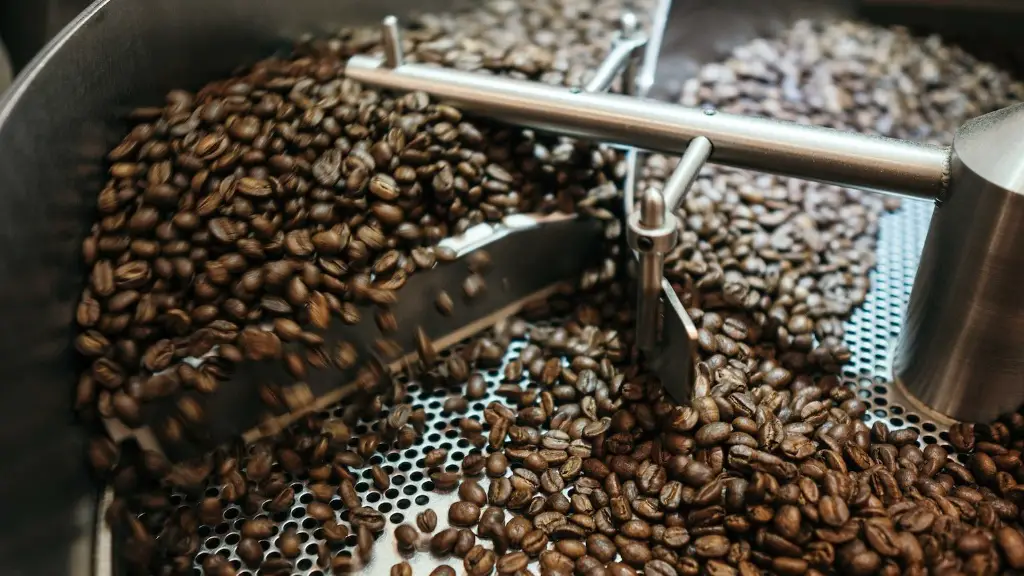Caffeine’s Effect on the Developing Body
Caffeine is a stimulant, and 2 year olds are extremely susceptible to stimulants. For example, caffeine can over-stimulate their developing central nervous system, causing headaches, restlessness, and insomnia. Furthermore, because their diet is still in formation and key nutrients are important for their growth and development, a caffeinated beverage can disturb the absorption of certain essential vitamins, minerals and other nutrients.
2 year olds’ still-developing kidneys and bladder are also not ready to accommodate the matter of significant caffeine consumption. Too much caffeine can cause extreme thirst and frequent urination. Caffeine is also a diuretic that pulls fluid from the body and can leave them dehydrated. This may lead to electrolyte imbalances, which can have hazardous repercussions such as seizures and other complications.
Generally, the American Academy of Pediatrics recommends children avoid caffeine altogether. Dr. Patricia Hibberd, Harvard professor and chair of the nutrition department at Massachusetts General Hospital for Children asserted, “Just as it’s best for younger children not to drink alcohol, it’s best to keep young children away from caffeine”.
The Lowdown on Coffee
Coffee is among the richest natural sources of caffeine. This means that a cup of brewed coffee contains a higher amount of caffeine when compared to other drinks like hot chocolate or tea. A regular 8-12 oz cup of coffee contains 95-165 mg caffeine.
However, the amount of caffeine in a cup of coffee is not the only factor to consider. With the array of beverages available on the market, the consumption of additives and other agents such as cream, milk, and sugar are also worthy of consideration. Creams and milks can further increase the levels of fat and hence, calories ingested.
Nutritional Benefits of Coffee
On the other hand, some of the nutritional benefits of coffee cannot be ignored. Depending on the bean, coffee increases Energy and metabolism rate, promotes fat breakdown and helps reduce insulin levels. Coffee also contains Vitamin B and B-complex, antioxidants, and essential minerals like magnesium, manganese, potassium, and copper.
These benefits can improve physical performance and mental engagement; this is why adults tend to gravitate toward the beverage. Nonetheless, these effects are not applicable to 2 year olds as their bodies are still experiencing rapid growth and development.
Alternatives
For adults looking for an alternative to coffee, there are many options available. Moringa tea is one of the healthiest sources of caffeine. Not only are the levels of caffeine lower, but it also contains antioxidants known for its anti-inflammatory properties, protein, and other essential minerals and vitamins such as folate, Vitamin A, Vitamin B-6, calcium, and Vitamin E.
Chicory coffee is another alternative. As a lactose and gluten-free caffeine source, it is suitable for people with special dietary requirements. Chicory root is also known to regulate levels of sugar in the blood while providing essential minerals such as Iron and calcium.
In conclusion, 2 year olds should not consume coffee or any caffeinated beverages due to their developing bodies, which will undoubtedly be influenced by the stimulant-dependent beverage. However, there are a variety of coffee alternatives available that are both delicious and packed with essential nutrients.
Coffee’s Adverse Effects on Health
Coffee is thought to have several adverse effects on health. Excess dietary caffeine can lead to cardiovascular problems like hypertension, as it is a vasoconstrictor that constricts artery size, which in turn pressurizes the heart and increases blood pressure. Additionally, high levels of caffeine can also increase lactic acid levels leading to decreased muscle coordination.
There is also evidence from animal studies to suggest that chronic high doses of caffeine may have toxic effects. These effects include abnormal cell growth, abnormal development of bones, and abnormal brain development. Furthermore, if given to 2 year old infants, caffeine has been found to cause effects such as fatigue, anxiety, restlessness, decreased appetite and stomach pain.
Understanding Coffee Addiction
In adults, some problems that can arise from caffeine consumption is the risk of caffeine addiction. Addiction to the stimulant is a real phenomenon and it can lead to long-term dependency. Interestingly, once a person is addicted to caffeine, if he or she goes without the beverage for long enough, withdrawal symptoms such as headaches and extreme tiredness can arise.
It is also difficult to identify a potential addiction to caffeine. This is due to its ubiquity, it is embraced in common forms of beverages such as tea and coffee, and is available in forms such as energy drinks and caffeine pills, for those seeking that extra kick.
Caffeine and Attention Disorders
Consumption of caffeine has detrimental effects on children with Attention Deficit Hyperactivity Disorder (ADHD), as it increases physical activity and impairs concentration. Therefore, those already diagnosed with Attention Deficit Hyperactivity Disorder or having hyperactive or inattentive trait are strongly cautioned against caffeine.
Combined with sugars, caffeine can be especially dangerous. For example, studies have revealed that the combination of sugar and caffeine is linked to an increase in impulsivity and hyperactive behaviors in young adolescents, an effect which was absent in both sugar and caffeine-free options.
Safety Measures and Recommendations
Overall, caffeine is a drug that should be treated with caution. Many parents drive under the impression that if coffee and energy drinks are safe for adults and teenagers, then they should be safe for young children as well. This is not the case and due to the range of potentially adverse effects, paediatricians around the world advise against any and all forms of caffeine consumption for children. Therefore, it is highly recommended that 2 year olds steer clear from coffee.
Summary of Adverse Effects of Caffeine
To summarise, adverse effects of caffeine on 2 year olds include: headaches, restlessness, insomnia, increased thirst, frequent urination, disturbed absorption of essential nutrients, electrolyte imbalances and seizures.
Risk of Long-Term Damage
Studies have found that damage from caffeine can persist for years even with cessation of use. This effect is particularly prominent in young children’s developing bodies, as their systems are often much more sensitive than adults. As such, it is important to ensure that children do not consume caffeine as it may have long-term damaging effects.
Conclusion
All things considered, it is imperative to understand the implications of caffeine in the body and recommended for children not to drink coffee. For adults, there are many coffee alternatives available that are delicious, healthy and high in nutrient content.




